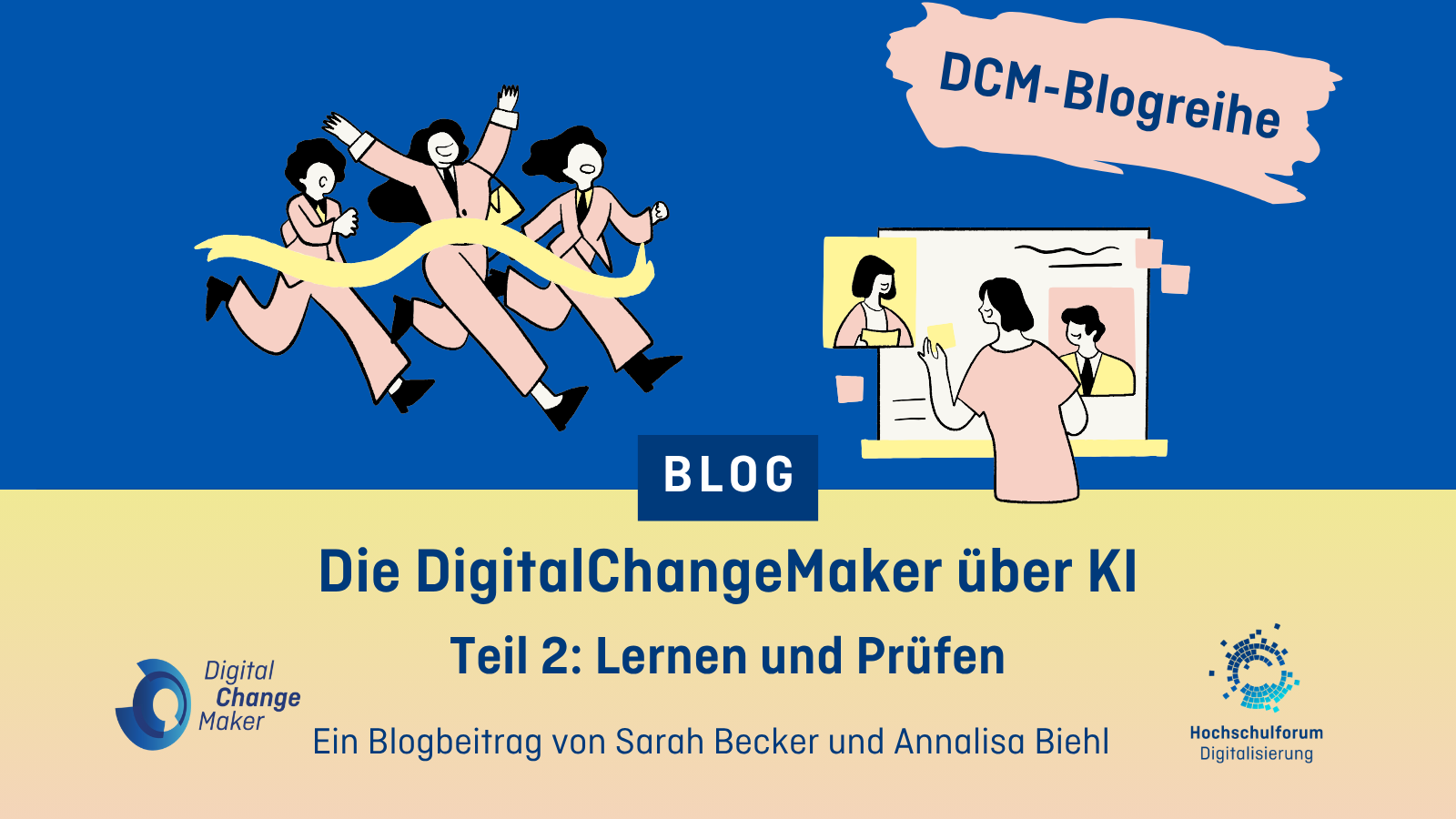#SemesterHack 2.0: Digital Higher Education Beyond Borders – An Interview
#SemesterHack 2.0: Digital Higher Education Beyond Borders – An Interview
04.11.20
#SemesterHack 2.0 joined the international stage in November 2020 as part of the worldwide idea hackathon DigiEduHack. Organised by HFD, DAAD and KI-Campus, #SemesterHack 2.0 brings together idea drivers and players from the education sector. They are all united by one goal: to make digital higher education sustainable and thus change it. The Hackathon is one of over 60 teams worldwide that make the DigiEduHack what it is: an enriching experience across the line – from anywhere, for everyone, smart digital. Students, researchers and educational scientists from all over the world drive innovation, expand their contacts and, through knowledge transfer, shape the pulse of digital education under the conditions of a global pandemic.
New: This year the winning teams will share funding totalling at least 150,000 EUR.
This article was translated automatically using DeepL. Please excuse any errors.
Kai-Uwe Hunsicker (#DigitalChangeMaker & Vorstand FFD e.V.) spoke with Prof. Dr. Anett Mehler-Bicher (Vice President Digialisation at Mainz University of Applied Sciences), Ann-Kathrin Grohs (AstA Board HS Mainz and DCM) and Till Rückwart (organiser of the hackathon at Hochschulforum Digitalisierung in Berlin) about the chances of digital higher education as well as collaborative, cross-border educational initiatives such as the DigiEduHack and the national #SemesterHack.
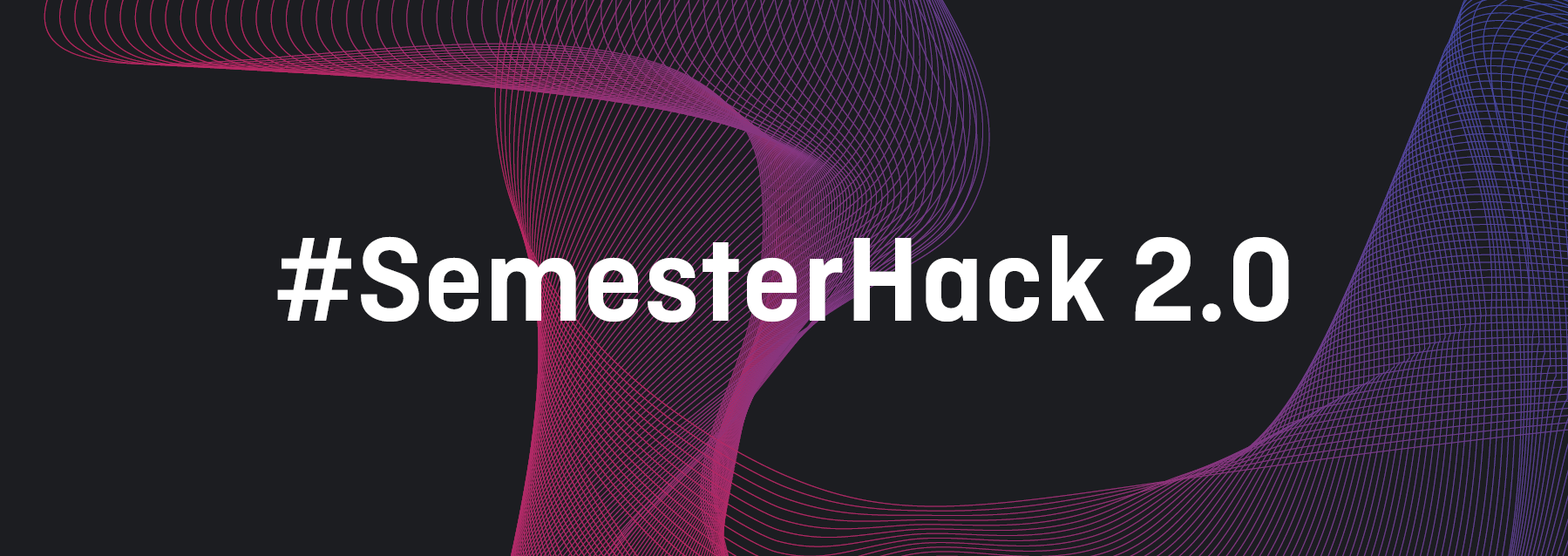
Till, you are in the middle of preparations for the next #SemesterHack on November 12 and 13. What new things can the participants expect?
Till Rückwart: All in all, the format should be even more inclusive than the first SemesterHack. #SemesterHack 2.0 is to become more interdisciplinary in wording and design and appeal to a broader target group. Submissions of project ideas will now be included directly in the Hackathon. Every idea originates from a need and therefore has a right to participate. The teams will then meet and exchange ideas according to their own interests. Once again, programming skills are not required. I would like to encourage all interested parties to submit their ideas! Until 9 November all ideas can be submitted via our form.
Another new feature is that we are organising the SemesterHack as part of the global hackathon DigiEduHack. Background: The DigiEduHack is a flagship initiative of the new Digital Education Action Plan of the European Commission. We are very excited about the exchange with other participants from all over the world and are very happy to be part of this digital, global ecosystem.
Ann-Kathrin Grohs: One of the findings of the last hackathon was that impulses could provide added value for the participants and for the group work. Some mentors have already taken the initiative and held ad hoc workshops. We definitely want to take this up and give impulses for team building and the start of group work even before the hackathon. Furthermore, during the #SemesterHack 2.0 workshops on different topics will take place. Individual team members will get methods into their hands that can be shared with the whole team. Core aspects are key topics such as design thinking, team structuring, user experience (UX), data protection and the design of future best practices.
The last Hackathon had more than 1,000 participants. How do you organise all this and make sure that everyone gets together in an orderly fashion and that synergies develop in the best possible way?
Till Rückwart: Already on Monday, 9.11., we will invite the participants to the collaborative platform Mattermost and publish the ideas to be worked on at the Hackathon. Mattermost is our central, digital ecosystem for inter-university exchange. Until the actual hackathon three days later, everyone has the option of zooming in on different ideas, networking in advance, asking initial questions and setting up smart teams. This process is moderated, accompanied and guided by us at the Stifterverband and the DAAD. These are good prerequisites for bringing the #SemesterHack format onto the international stage. In any case, we’re already super excited to see how it all works together and what grows from the many good ideas.
Prof. Mehler-Bicher, your university was already involved in the first hackathon in spring. Where do you see the opportunities and potential of this still very young digital innovation camp?
Anett Mehler-Bicher: In the German educational landscape, digitisation is experiencing an undreamt-of boost through Corona. There is real momentum, but also positive pressure to establish digitisation in higher education on a broad scale. If you look around in other European countries, the USA or Asia, you will find numerous other examples of how digital change is changing the way we teach and learn. The #SemesterHack 2.0 is intended to provide valuable impulses for our own work and inspire us to break new ground or to expand on established ones. For this reason, we want to invite all those who are significantly involved in the digital change or the future of teaching and learning to participate in international networking. We hope that all participants can gain impressions from as many countries as possible. This should encourage them to make everyday education in their own country more lively and colourful. This is exactly our goal.
If we take a concrete look at this for the German education sector at hundreds of colleges, universities and universities of applied sciences: What does this mean for the coming months under the impact of the pandemic?
Anett Mehler-Bicher: It’s clearly a matter of developing and justifying ideas for the digital winter semester. Measures and concepts for digital teaching are currently helping to maintain teaching across the board. The corona crisis has led to a surge in digitisation at universities in Germany and worldwide. To avoid the risk of infection, universities have been forced to quickly shift established processes, such as teaching, to the digital space. Existing projects for new, digitally based teaching, or teaching that is supplemented by it, have been pushed forward. This is a very dynamic process, because the dean’s offices and the heads of the institutes have brought concepts to the table, but students themselves are also using existing systems and apps to find solutions for learning and professional exchange for the new normality within the pandemic.
What do you find particularly appealing about the Hackathon?
 Anett Mehler-Bicher: „It’s clear that so many students participate, it was a totally fascinating experience from the very first time. The collaboration across status groups is a huge opportunity: everyone contributes with their own ideas and resources, and the digital space blurs – to put it positively – the usual status boundaries. We can all put more emphasis on the issue and the topics. Demand- and user-oriented innovation and co-creation, these are absolute key aspects for current and future digitisation, both nationally and internationally. We can be just as pleased as we are a little proud that we in Germany are helping to shape these developments and promoting interdisciplinary networking. Barcamps, Unconferences, Hackathons, Open Spaces – participatory formats are now more in the foreground. For us in the governing bodies within the universities, the question is how such formats can be made fruitful for our own further development and how innovation can be promoted as a bottom-up process.
Anett Mehler-Bicher: „It’s clear that so many students participate, it was a totally fascinating experience from the very first time. The collaboration across status groups is a huge opportunity: everyone contributes with their own ideas and resources, and the digital space blurs – to put it positively – the usual status boundaries. We can all put more emphasis on the issue and the topics. Demand- and user-oriented innovation and co-creation, these are absolute key aspects for current and future digitisation, both nationally and internationally. We can be just as pleased as we are a little proud that we in Germany are helping to shape these developments and promoting interdisciplinary networking. Barcamps, Unconferences, Hackathons, Open Spaces – participatory formats are now more in the foreground. For us in the governing bodies within the universities, the question is how such formats can be made fruitful for our own further development and how innovation can be promoted as a bottom-up process.
Ann-Kathrin, what are the front issues within the initiative, especially for students like you?
Ann-Kathrin Grohs: Of course it is important for us that the quality of teaching remains good and that simultaneous supervision does not suffer. Digital teaching is becoming more important, from qualification and implementation to digital testing. Collaborative work is still new for many students, and here it is important to attract more people in all faculties and departments. Virtual mobility can open up our own focus and we can bring content from international study locations to our homes. But it’s also about digital campus life on a very local level: From peer support and student participation to student counselling, digital formats can open up new avenues of approach and reach more students. Digital literature and knowledge supply are further aspects that are being expanded and make studying even richer and more diverse. That’s what it’s all about in the core: that we gain new experiences during our studies, sound out our limits and grow beyond them.
In any case, that sounds like an experience and a hackathon not to be missed. Thank you very much for the exchange on digitisation in the German university landscape and how the current challenges can be transformed into opportunities. Stay healthy!
Want to help shape the winter semester? Submit your ideas for #SemesterHack 2.0 now until 9 November.

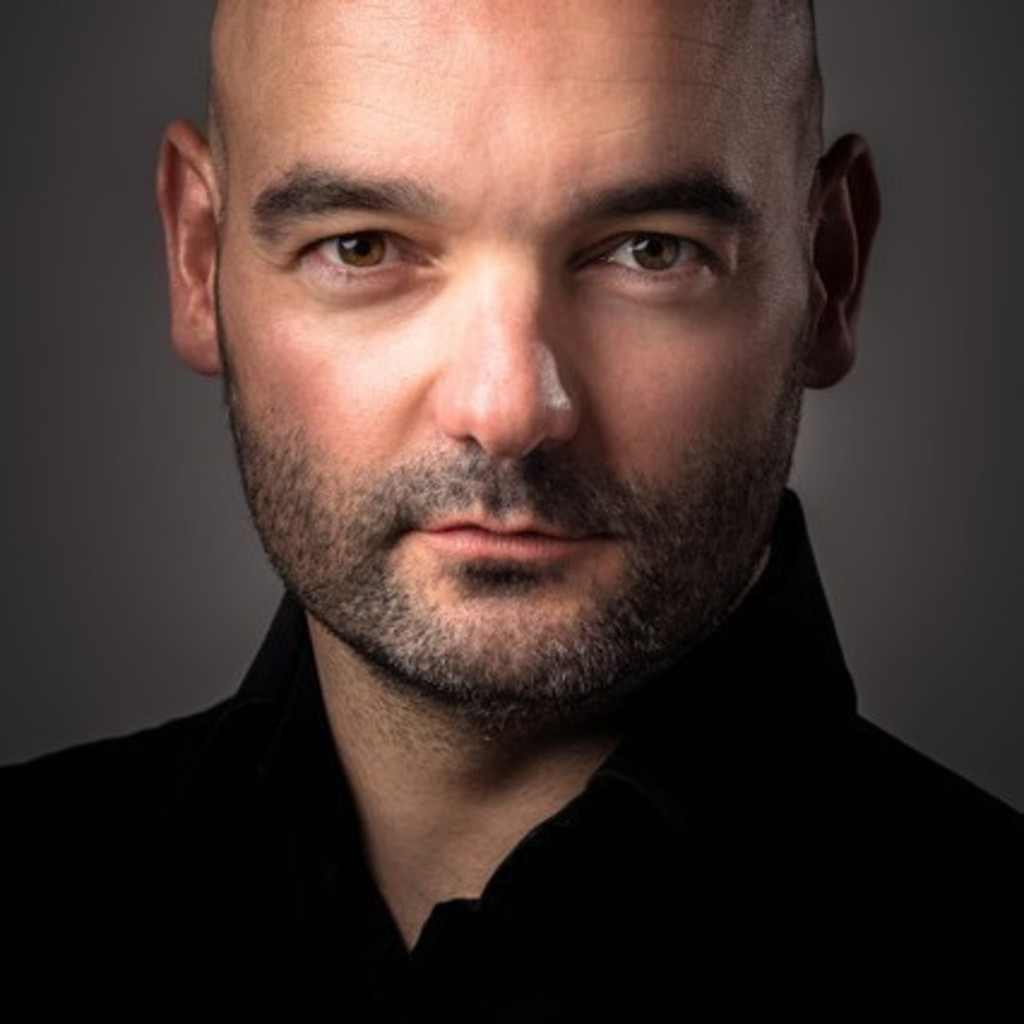
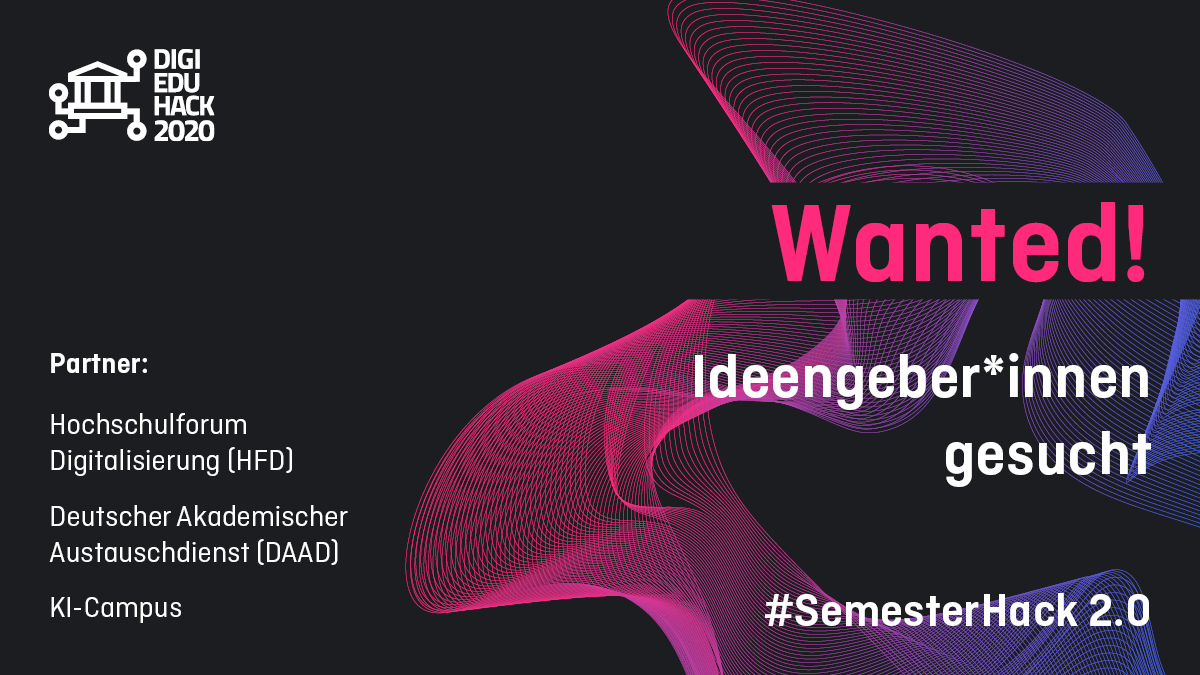
 Mauritz Danielsson
Mauritz Danielsson 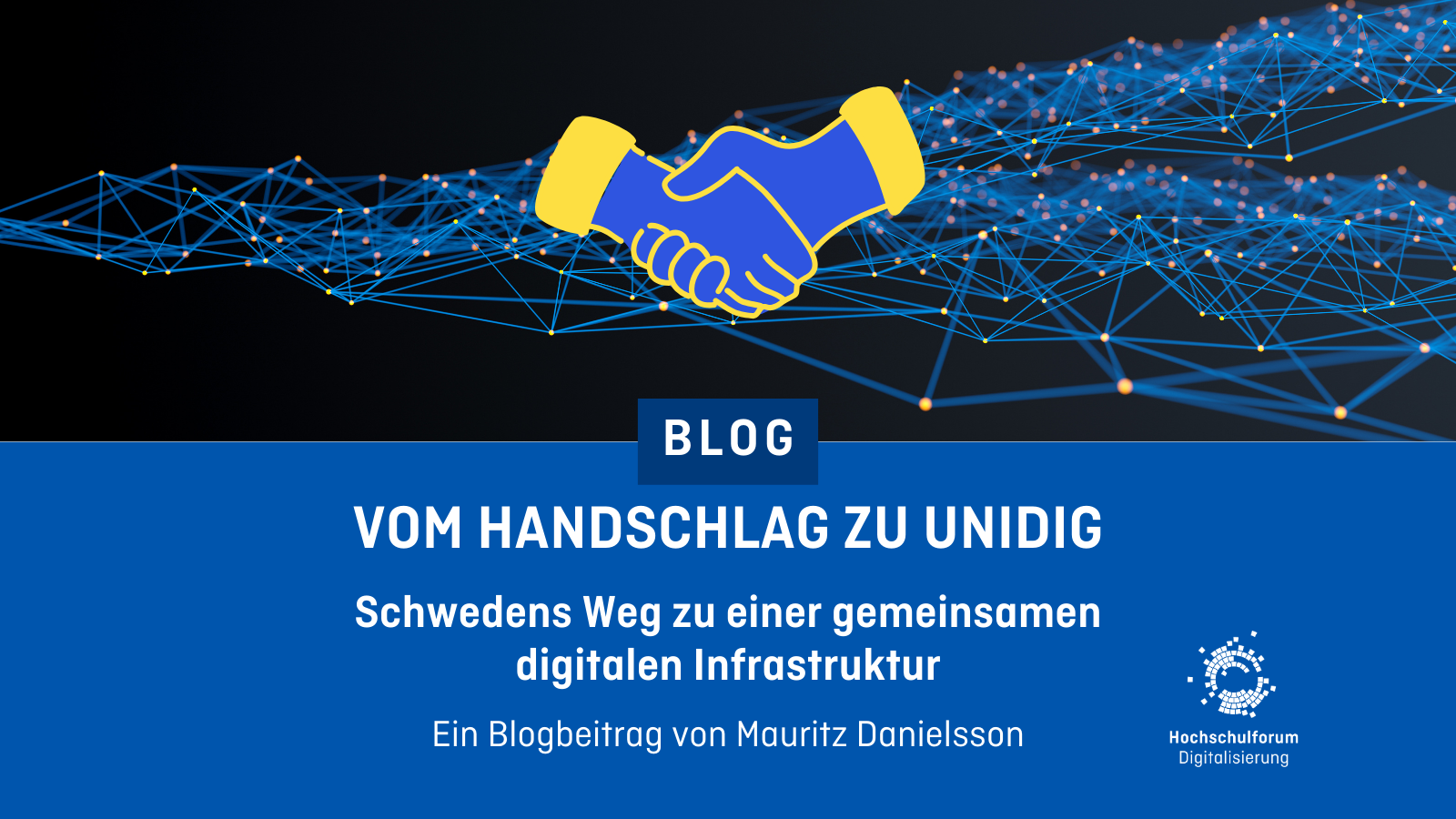
 Peter van der Hijden
Peter van der Hijden 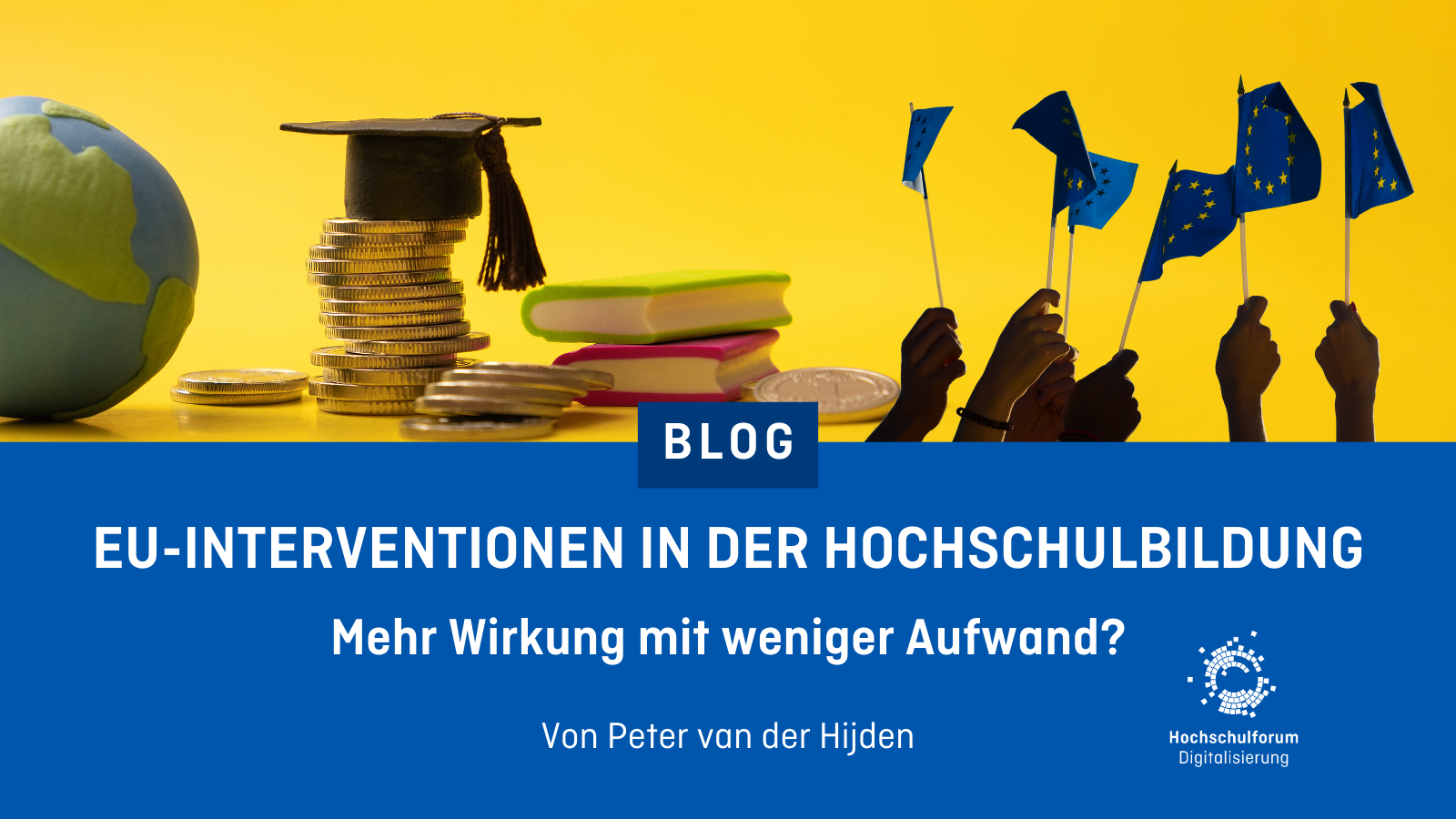
 Annalisa Biehl
Annalisa Biehl 